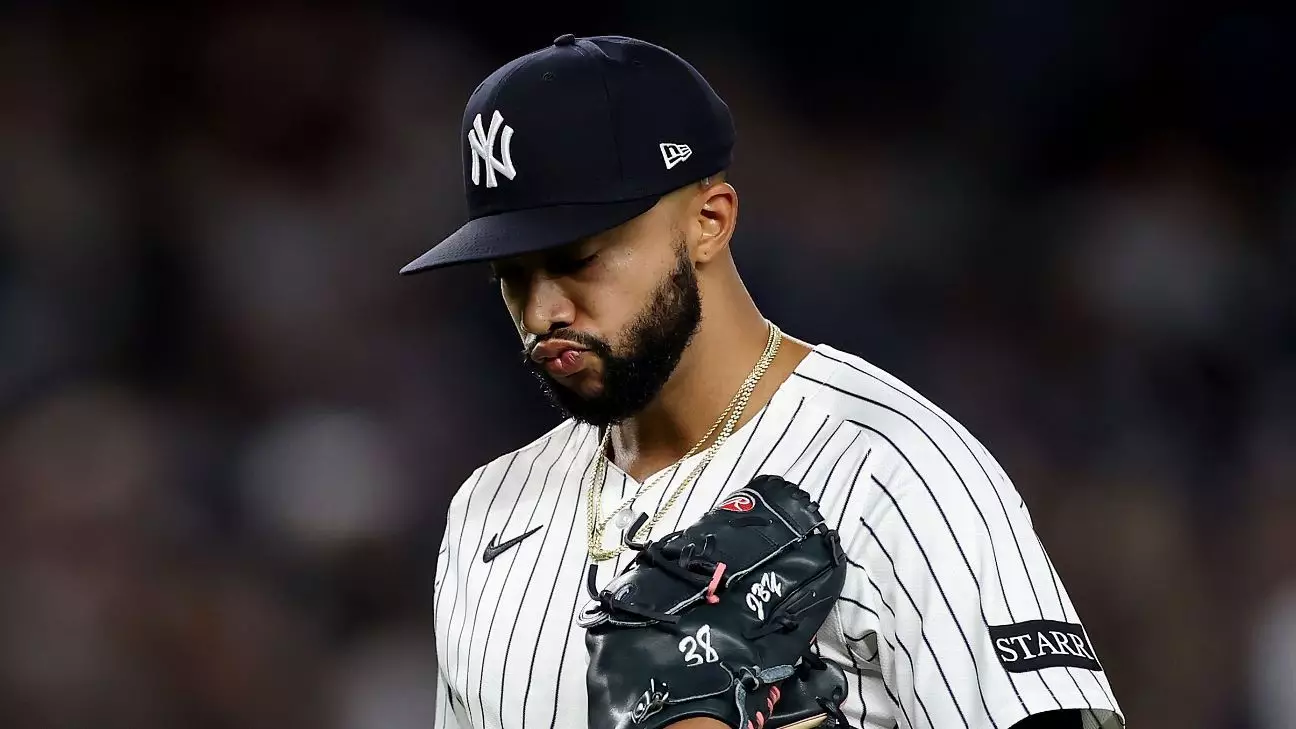In a game that demonstrated both the highs and lows of professional baseball, New York Yankees closer Devin Williams found himself at the center of a rather harsh reality. On a Friday night marked by promise, Williams failed to secure a save against the Toronto Blue Jays, allowing a two-run double that ultimately sealed the Yankees’ fate in a 4-2 loss. The spectacle of Williams can only be described as a daunting crescendo, as he faced not only the Toronto hitters but also the palpable discontent of the Yankee Stadium crowd, who were quick to express their frustration with audible boos. In a season where the stakes are particularly high, Williams’ plight raises critical questions about both his performance and the Yankees’ strategy moving forward.
The Weight of Expectations
Since joining the Yankees from the Milwaukee Brewers, Williams has carried the heavy mantle of expectation. A two-time All-Star and a vital cog in Milwaukee’s successful bullpen, Williams was seen as the ideal replacement for Clay Holmes—a player who had served as the team’s closer for some time. With a rich history that includes a remarkable 1.83 ERA over six seasons, the Yankees acquired Williams in hopes of fortifying their pitching staff.
However, what they have witnessed in the early months of this season is far from the dominant reliever they anticipated. An alarming 11.25 ERA across ten appearances paints a troubling portrait of a pitcher grappling with his consistency, control, and confidence. The statistical analysis reveals a worrying decline in effectiveness; Williams has gone from being a strikeout machine to an average pitcher who is struggling to get batters out consistently.
The Call for a Shake-Up
Manager Aaron Boone’s reluctance to completely dismiss Williams from the closer role—despite the mounting pressure—suggests a belief that the All-Star pitcher can recover from this unfortunate slump. Boone’s stance of “we’ll see” indicates a willingness to explore alternatives, including the possibility of placing Williams on the shelf temporarily. Such a move could not only relieve Williams from the immediate pressure but may serve to rejuvenate his performance when he returns.
The most pressing question is whether Boone should gamble on Williams’ resurgence or pivot to other options, such as the reliable Luke Weaver, who has shown remarkable consistency, boasting an impeccable ERA in his limited appearances this season. The Yankees face a pivotal moment: do they trust in Williams’ inherent talent and previous accolades, or do they risk further entrenching their bullpen in a state of disarray?
Statistical Struggles: A Deeper Look
Recent data reveals the depths of Williams’ struggles in a more illuminating light. Opponents have skyrocketed their batting averages against him, leaping from a noticeably-low .133 last season to an eye-watering .343 this year. Fewer swings and misses, a dramatic drop in his whiff rate from 40% to a mere 24.1%, exposes a deeper issue—he is losing his ability to baffle hitters, and it’s resulting in more than just lost games; it’s impacting team morale.
Add to this his difficulty in commanding the strike zone, being frequently behind in counts, and you have a cocktail of woes that even the most talented pitchers would find hard to overcome. Williams acknowledged to reporters that “nothing’s working right now,” and that kind of honesty is both alarming and heartening; it illustrates a level of self-awareness yet highlights the uphill battle he faces.
Emotional Toll and Mental Fortitude
Baseball, at its heart, is as much a mental game as it is a physical one. The uncertainty surrounding Williams’ headspace is palpable, and the crowded stands throwing unwarranted jeers certainly don’t help. Williams’ response to the crowd’s reaction—that he refrains from having an “opinion” on it—reflects a stoicism that may serve him well in the long run. Nonetheless, every pitch he throws is now accompanied by a weight of expectation mixed with trepidation, affecting not just his approach to the game but also his role within the team.
The road ahead is obviously challenging; however, Williams has the talent and experience to make a comeback. With the right adjustments and support—both from his teammates and coaching staff—there is hope that he can transition from the burden of expectation back into a reliever capable of shutting the door on opponents consistently.
As the Yankees move forward, the decision regarding Williams could define not just his future but also the trajectory of the team’s season. A calculated shift in strategy may not only benefit Williams personally but could set in motion a chain reaction that will rejuvenate their entire bullpen. The potential for comeback narratives exists, but it must be navigated delicately to avoid further setbacks.


Leave a Reply